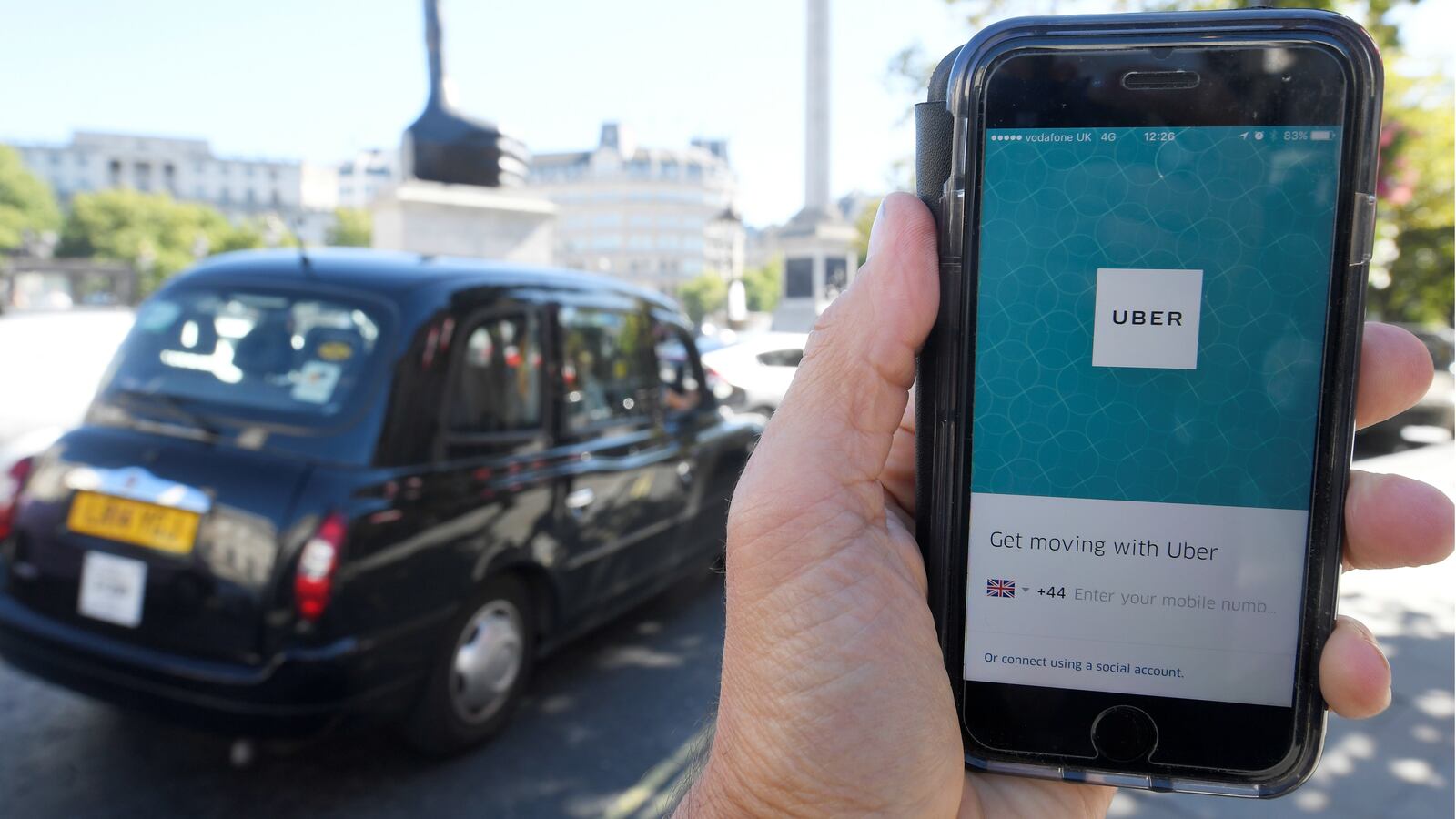LONDON—It’s almost impossible to make Londoners panic but there were gasps of distress across the capital Friday when the mayor announced that Uber was to be banned from the city.
Since its arrival in 2012, Uber has completely transformed London’s transport system. Unlike major cities from New York to Mumbai, there has never been an affordable citywide network of private-hire vehicles to complement the train and bus systems.
Black cabs were largely the preserve of city workers and tourists, being too expensive for weekly or even monthly use for most Londoners. The explosion of Uber, which has 3.5 million users in London, has fundamentally changed the way people navigate the city.
Sadiq Khan, the mayor of London, said he accepted that millions of Londoners had benefited from Uber, but claimed that the company’s refusal to “play by the rules” meant there was no option but to revoke Uber’s license.
Transport officials ruled that the ride-sharing service puts the safety and security of its passengers at risk and should be halted by the end of the month.
“Providing an innovative service must not be at the expense of customer safety and security,” he said. “It would be wrong if [Transport for London] continued to license Uber if there is any way that this could pose a threat to Londoners' safety and security.”
Uber’s current license will expire Sept. 30, although it will be allowed to carry on operating during an appeal so it is unlikely that Ubers will disappear from London’s congested roads before mid-October at the earliest.
There is no doubt that Uber will appeal against this shock ruling. “If this decision stands, it will put more than 40,000 licensed drivers out of work and deprive Londoners of a convenient and affordable form of transport,” said Tom Elvidge, Uber’s general manager. “This ban would show the world that, far from being open, London is closed to innovative companies who bring choice to consumers.”
Black-cab drivers, who have to pass a notoriously difficult test called The Knowledge (which proves they know every road in Central London), have campaigned against their cheaper rivals for years but British officials claim this decision was purely down to safety concerns.
Transport for London said the U.S. company did not take a sufficiently rigorous approach to reporting serious criminal offenses, background checks on drivers, or medical checks.
“Uber’s approach and conduct demonstrate a lack of corporate responsibility in relation to a number of issues which have potential public safety and security implications,” a spokesman said.
Uber was warned about its conduct in May when the license was only extended for four months.
Opponents of the mayor suggested the decision was motivated by pressure from unions, many of which have attacked Uber since its British launch.
Mick Cash, general secretary of the rail, maritime, and transport union, was one of those racing to congratulate the mayor.
“Uber has consistently failed to reach acceptable standards of service, safety and security and we applaud this decision which is a victory for passengers and also a vital step in protecting the livelihoods of the skilled and experienced London taxi drivers who are being unfairly undercut by Uber.”






